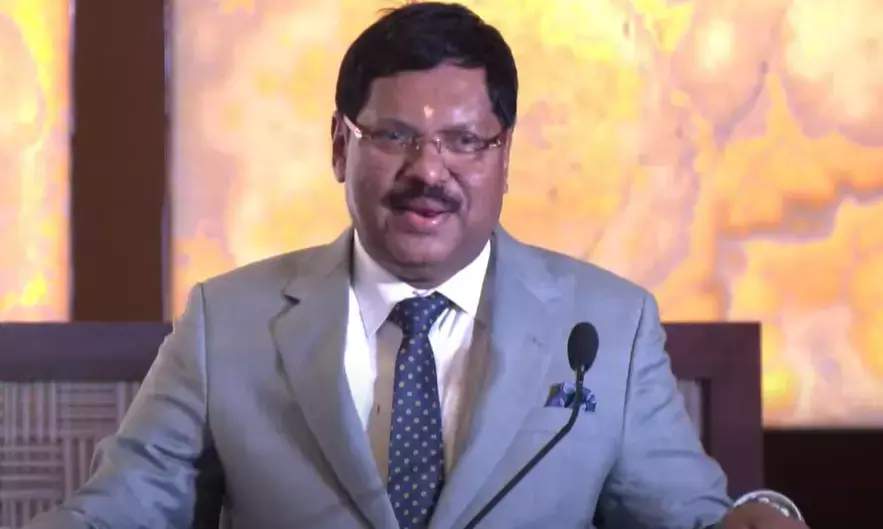CJI Gavai recuses from hearing Justice Yashwant Varma's plea against removal

CJI BR Gavai emphasises collaboration between judiciary, executive and legislature at MNLU event; lays foundation for new Bombay High Court complex in Bandra
Chief Justice of India BR Gavai has recused from hearing the plea filed by Justice Yashwant Varma, challenging the recommendation made by the previous Chief Justice of India (CJI) Sanjiv Khanna for his removal from office.
Yesterday the Supreme Court agreed to hear a plea filed by Justice Varma, a sitting Judge of the Allahabad High Court challenging the recommendation made for his removal from office, following an internal inquiry into the discovery of burnt cash at his official residence in Delhi earlier this year.
Senior Advocate Kapil Sibal had mentioned the same before a CJI BR Gavai led bench who agreed to list the same. "This raises some constitutional issues...if it can be listed..", Sibal told the bench.
"I will not be able to take it up because I was also a part of that committee..we will list it..", CJI Gavai said in response.
Justice Varmas' petition filed through AoR Vaibhav Niti raises serious constitutional questions about the limits of the judiciary’s internal disciplinary mechanism, seeks to quash the May 3, 2025 Final Report of a three-member in-house inquiry committee that found allegations against the judge “proved,” and the subsequent recommendation by the CJI to the President and Prime Minister on May 8, 2025 to initiate removal proceedings.
The judge, who has served for over 11 years and was transferred to the Delhi High Court in 2021 before being repatriated to Allahabad in April 2025, contends that the in-house procedure has been misused to create an extra-constitutional route for judicial removal that circumvents Article 124 and Article 218 of the Constitution.
The matter arises out of a March 14–15, 2025 fire incident at the judge’s official residence in Tughlaq Crescent, New Delhi. Officials of the Delhi Fire Services and Delhi Police allegedly discovered burnt currency in an outhouse on the premises. No formal seizure or inventory was made, but some videos and photos were reportedly taken informally.
At the time, the judge was on vacation in Madhya Pradesh. Despite no formal complaint being lodged, the then CJI initiated proceedings under the 1999 In-House Procedure and constituted a three-member committee to inquire into two allegations: that the currency belonged to the judge, and that he was aware of its removal the next morning. The Committee’s report concluded that misconduct was “proved” and grave enough to warrant initiation of the judge’s removal.
In his petition, Justice Varma has argued that the In-House Procedure lacks constitutional or statutory backing for recommending removal, and that it cannot override the process set out in the Judges (Inquiry) Act, 1968, which governs impeachment proceedings under Article 124(5).
He asserts that the process followed was in breach of natural justice and due process; no formal hearing was granted, evidence was selectively disclosed, and critical questions about the origin and quantity of the cash, the cause of fire, and the alleged removal were left unanswered.
The petition also highlights concerns over procedural irregularities: no formal complaint existed, the judge was denied a chance to review evidence or respond meaningfully, and unprecedented media disclosures by the Supreme Court and leaks of the report caused lasting reputational damage.
Justice Varma has asked the Apex Court to declare the May 8 communication to the President and Prime Minister recommending his removal as unconstitutional and to quash the committee’s Final Report along with all consequential actions. He contends that the process followed lacks legal sanction, breaches the basic structure of the Constitution by violating the separation of powers, and undermines judicial independence.
